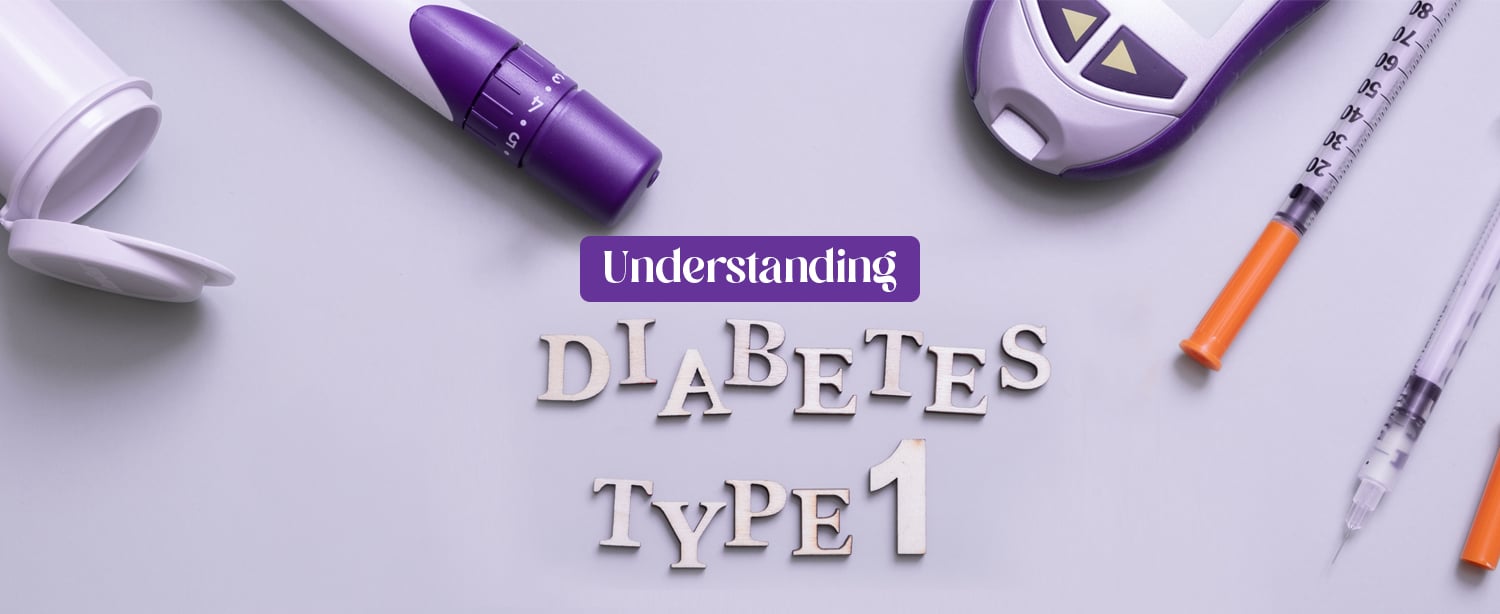Type 1 diabetes is a chronic autoimmune condition characterized by the pancreas’s inability to produce sufficient insulin, a hormone vital for regulating blood sugar levels. One needs insulin to help glucose enter cells for energy. In the absence of insulin, glucose accumulates in the bloodstream, leading to elevated blood sugar levels and the potential for various complications. While it’s less common than type 2 diabetes, it requires lifelong management and care. Understanding the symptoms, causes, and treatment options for type 1 diabetes is crucial for individuals, families, and communities.
In India, nearly 95,600 cases of Type 1 diabetes have been identified in children under 14 years old, with approximately 15,900 new cases reported annually within this age category. The overall estimated number of people grappling with Type 1 diabetes in India stands at 2.5 lakh. This condition was once called insulin-dependent or juvenile diabetes, but it can develop at any age.
Symptoms of Type 1 Diabetes
Recognizing the symptoms of type 1 diabetes is essential for prompt diagnosis and treatment. These symptoms often manifest suddenly and include:
- Unusual thirst
- Frequent passing urine
- Extreme hunger but loss of weight
- Blurred vision
- Nausea and vomiting
- Extreme weakness and fatigue
- Irritability and mood changes
What causes Type 1 Diabetes?
The exact cause behind type 1 diabetes remains unidentified. Individuals with type 1 diabetes experience an immune system response triggered by infection or another factor, leading to the mistaken assault on the pancreas’s beta cells responsible for insulin production. The inclination to develop autoimmune diseases, such as type 1 diabetes, can be hereditary, passed down from parents.
Treatment Options: Type 1 Diabetes
Type 1 diabetes is a complex condition that requires continuous management. Recognizing the symptoms, understanding the causes, and having access to appropriate treatment options and support networks are critical for individuals living with this condition. This includes:
- Insulin Therapy
As the pancreas fails to produce insulin, regular insulin injections or continuous insulin infusion through a pump are necessary to regulate blood sugar levels. Various types of insulin, such as rapid-acting, short-acting, intermediate-acting, and long-acting, are used based on individual needs. - Blood Sugar Monitoring
Regular blood sugar monitoring using a glucose meter helps individuals track their glucose levels and adjust insulin doses accordingly. - Healthy Diet
A balanced diet rich in fruits, vegetables, lean proteins, and whole grains helps regulate blood sugar levels. Carbohydrate counting can aid in managing insulin doses. - Physical Activity
Regular exercise helps improve insulin sensitivity and regulate blood sugar levels. However, it’s essential to monitor blood sugar before, during, and after exercise to prevent hypoglycemia. - Monitoring
Continuous Glucose Monitoring (CGM) systems provide real-time glucose readings, helping individuals make informed decisions about insulin doses and lifestyle choices. - Support Groups
Diabetes education and support from healthcare professionals, diabetes educators, and support groups are vital for effectively managing the condition and coping with its daily challenges.
Diabetes care at Kokilaben Dhriubhai Ambani Hospital
Do you or someone you know suffer from type 1 diabetes? The treatment of Type 1 diabetes involves a multifaceted approach aimed at managing blood sugar levels and promoting overall well-being. Central to this regimen is insulin therapy, often administered through injections or insulin pumps, to compensate for the body’s inability to produce this crucial hormone. Regular monitoring of blood glucose levels is essential, allowing for timely adjustments in insulin doses. Consult highly experienced and trained diabetologists at our Centre for Diabetes & Bariatric Surgery for personalized care: https://www.kokilabenhospital.com/departments/centresofexcellence/centrefor_diabetesbariatricsurgery.html


